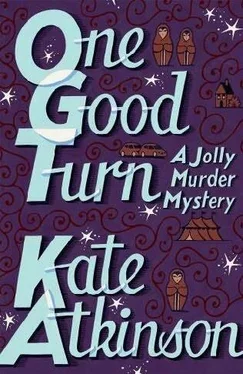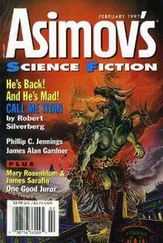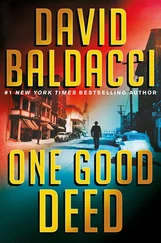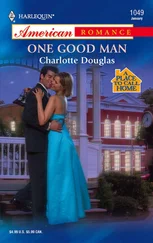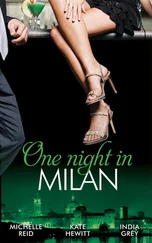“I’m not in my bed,” Gloria said, following her up the stairs and into the kitchen, where she fumbled in a drawer for candles and matches. Before she could find either, the power came back on.
“It said in the newspaper that the police thought a girl who was wearing crucifix earrings might have drowned.”
“Ah, yes,”Tatiana said. “Wasn’t me.”
“Who was it?”
“You didn’t call me, Gloria,”Tatiana said, ignoring the question, her mouth making a little moue of disappointment.
“I didn’t know I was supposed to.”
“I gave you phone number.”
Gloria had given her phone number to a lot of people in her time and never expected any of them to call her back. Tatiana started raking through cupboards looking for something to eat, and Gloria had sat her down and fixed them both toasted sand-wiches. When she finished her sandwich, Tatiana lit a cigarette and tore into a satsuma. Gloria had never seen anyone eat fruit and smoke at the same time. She made smoking look so enjoyable that Gloria wondered now why she had ever given it up. Something to do with pregnancy, but, really, had that been a good enough reason?
“Graham has a mistress,” Gloria said.
“Ah, yes, Maggot,” Tatiana said. “Voddabitch. He’s going to leave you.”
“Is it done yet, is it over? Have you got rid of Gloria? Have you got rid of the old bag?” Not planning to kill her but to leave her, which was a relief. “He should live so long,” Gloria said.
Tatiana had lost interest in the conversation, she stretched and yawned and said, “I have to go to bed now,” so Gloria had put her in Emily’s old room, where she snored like a trooper most of the night before waking up and asking for bacon sandwiches “with pickles. You have pickles?”
“Just Branston,” Gloria said.
It wasn’t every day that a strange Russian dominatrix appeared out of nowhere and prowled around your house. Gloria followed Ta-tiana into the living room and watched her pick up and inspect several ornaments, the Moorcroft seemed to meet with her approval but not the Staffordshire figures, particularly the pair of 1850 creamers in the shape of a cow that she judged “vile.” She inspected the fabric of the curtains, sniffed the flowers, tested the chairs for comfort. Gloria wondered if she howled at the full moon.
Tatiana proceeded to play with the Bang and Olufsen remote control, particularly taken with the button that turned the lights on and off, before stopping her pacing to scrutinize herself in the mirror. Then she picked an apple from the fruit bowl, and while she ate it (very loudly) she went through every station on the radio, pausing only to turn the volume up for Celine Dion’s “My Heart Will Go On.”And on and on and on. “This is great song,” she said.
Gloria was fascinated. It was like being stuck in a cage with a restless and opinionated animal. Tatiana seemed utterly foreign in all ways. If you had sliced into her with a knife (although it was more likely to be the other way round), Gloria suspected she would have tasted of raw reindeer meat and smoky black tea and the iron tang of blood. Someone else’s.
Finally, Tatiana threw herself on the sofa and blew air out of her mouth as if she were about to die of boredom. She scrutinized each of her fingernails in turn before giving Gloria a level gaze and saying, “Okay, Gloria. Shall we make a deal?”
Gloria had never made a deal in her life. She stood at the French windows and watched a huge wood pigeon, built like a cargo plane, waddling across the lawn. She turned back to look at Tatiana, another kind of wildlife, lying on the sofa and working her way through the channels on the television.
“A deal?” Gloria said. “What kind of a deal?”
“Crime Writers for Lunch,” as if they were going to be eaten by their audience. “Lunch” was coffee and filled white rolls, which were free and served from a bar at the back of the Spiegel-tent. And the writers were the entertainment. Dancing bears. They used to teach bears to dance by putting the cubs on hot coals. That was humanity for you. Martin had seen a bear-not a dancing one-in St. Petersburg. It had been with its owner, out for a walk on a lead, a brown bear as big as a big dog, on a small area of grass near the Neva. A couple of people were photographing it and then giving money to the man. Martin supposed that was why the man had the bear, to make money, everyone was trying to make money in St. Petersburg, teachers with no pensions selling books, gnarled old babushkas selling bits of knitting, girls selling their bodies.
The book event was being chaired by a gaunt woman whose credentials for chairing the event seemed vague, but in her intro-duction she claimed to be a “huge fan” of “genre writing,” and, “What a wonderful privilege it was to have a group of such di-verse writers with us this lunchtime.” Clap, clap, clap, hands raised high toward the three of them, a little geisha bow of obeisance.
Martin was sharing a platform with two other writers. One was an American woman by the name of E. M. Heller who was on a book tour, “trying to break into the British market,” and who wrote violent, edgy books about serial killers. In person, Martin had expected her to be precise and severe, dressed in black with a hint of Harvard about her, but she turned out to be a slightly frowsy blonde from Alabama with yellow teeth and a general air of sloppiness. When she spoke she put her hand in front of her mouth, Martin thought it was because of her yellow teeth, but she turned to him and said, “I don’t want to open my mouth, they’ll all hate my accent,” which came out more like “Ahdantwanopnma-marth, theyolol hayet maacksent.” “No, they won’t,” Martin reassured her. But they did.
Their little trio was completed by Dougal Tarvit, who lived up north, on Nina Riley’s patch, and who wrote “psychological thrillers” that were loosely based on real-life crimes. Martin had tried reading a couple but was put off by the fact that nothing really happened in them.
The Spiegeltent was full. Martin supposed the large audience was due to the economics of it-free food, and three writers for the price of one-but in the lull before they began, it slowly dawned on him that he was the subject of the attention. People were talking to one another about him, quite loudly in some cases, as if he weren’t actu-ally present. He distinctly heard a tightly querulous Morningside voice say, “But I thought he was dead,” in a way that implied that the female owner of the voice had been cheated by his live appearance.
E. M. Heller leaned across and said, “Hey, Alex, are you okay, honey?”
Martin reassured her that he was. “My real name’s Martin,” he added. What did E. M. Heller call herself, he wondered. Not “Em,” surely?
“No.” She laughed. “It stands for ‘Elizabeth Mary’-two queens for the price of one, my mama used to say, but people call me ‘Betty-May.’ ”
“Christ,”they both clearly heard Dougal Tarvit mutter, “it’s like being trapped inside fucking Steel Magnolias .”
Tarvit, slumped in his chair as if languor and bad posture were the marks of masculinity, seemed to hold his two fellow writers in contempt-E. M. Heller for being a woman and Martin for writing “populist shite,” words that were actually thrown in Martin’s direction in the course of what turned out to be a dismayingly quarrelsome sixty minutes. (“Well, the scalpels seem to be out today,” the gaunt woman said, glancing nervously around as if marking possible exits from the Spiegeltent.)
“I thought this was just a reading,” E. M. Heller whispered to Martin. “I didn’t realize it was a debate.”
Читать дальше
